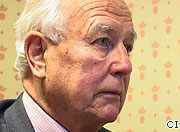An amendment which would have forced all English academy schools to teach sex education has been defeated in the House of Lords, but similar proposals may return in the autumn.
The amendment would have posed a particular threat to primary academies as they do not currently have to teach any sex education.
Baroness Massey, a Labour Peer, put forward the amendment to the Government’s Academies Bill which would have taken sex education lessons, in the form of Personal, Social and Health Education (PSHE), out of the control of school governors.
Freedom
The amendment was defeated by over 80 votes in the House of Lords, although some Peers were against the amendment solely because they claimed it was too weak.
However Lord Waddington, a Conservative Peer, said that the idea behind academies was that they should have “greater freedom than other schools rather than less”.
“Surely academies should be free to choose not to provide sex education for children of primary school age when the school and parents think that it would not be appropriate”, he said.
Simple
Lord Lucas, a Tory Peer, said he believed the amendment was “too restrictive and too simple”.
He commented, along with others including Baroness Walmsley, that the PSHE issue should be discussed in the autumn when the entire National Curriculum is set to be debated.
A second amendment would have threatened the religious status of schools which become academies and made it impossible for new academies to acquire religious status. However this amendment was dropped.
Control
Under the previous Labour Government’s proposals, sex education was to become a statutory part of the National Curriculum and control over the content of lessons was to be taken away from school governors and given to Whitehall officials.
However in the final throes of the last Parliament the Government was forced to drop the plans.
In March hundreds of head teachers and faith leaders signed a letter to The Daily Telegraph calling on Parliament to oppose the Government plans.
It said the Bill in which the plans were contained undermined the principle that parents, not schools, have the primary responsibility for raising children.

